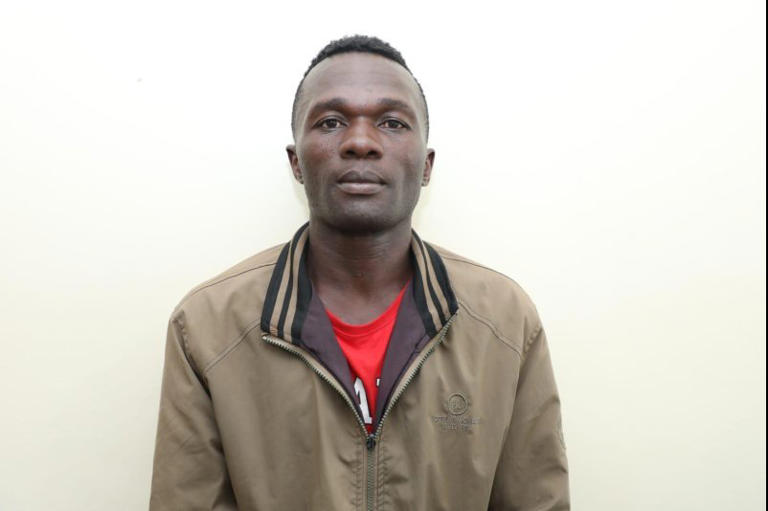Eight police officers in Kenya have been suspended on suspicion of facilitating the escape of a suspected serial killer, Collins Jumaisi Khalusha, who is alleged to have confessed to the murders of 42 women, including his wife, since 2022. The suspensions were announced as authorities continue their investigation into the escape.
Khalusha had been in custody since his arrest in July, following the discovery of nine mutilated bodies in an abandoned quarry in Nairobi. According to police reports, the victims were all women aged between 18 and 30, and were killed in a similar manner. The gruesome nature of the crimes and the proximity of the bodies to a police station sparked widespread outrage and questions about the police’s failure to detect the killings sooner.
On Tuesday, police reported that Khalusha, along with 12 other detainees, had escaped from the police station where they were being held. The escape was allegedly aided by insiders, and the detainees reportedly cut through a wire mesh roof before scaling a perimeter wall. The 12 others who escaped alongside Khalusha were Eritrean nationals who had been detained for entering Kenya illegally.
The discovery of the escape was made early in the morning, around 05:00 local time (03:00 GMT), when officers arrived to serve breakfast to the detainees. Following the escape, eight officers who were on duty at the time were suspended as investigations into the incident continue.
Khalusha’s lawyer, John Maina Ndegwa, has denied the allegations against his client, claiming that Khalusha was tortured into confessing to the murders. Ndegwa has maintained that Khalusha was in distress and terrified when he made the alleged confession.
The case has drawn significant attention, with Kenya’s Independent Police Oversight Authority launching an investigation to determine whether police officers may have been involved in unlawful activities related to the killings. This investigation comes amid growing concerns about human rights abuses by Kenyan police, particularly in light of recent incidents involving deaths and abductions during anti-government protests.
The circumstances surrounding Khalusha’s arrest and the subsequent discovery of the bodies have raised further questions. Many have wondered how such a large number of murders could have gone unnoticed for two years, only for police to make an arrest within days of the discovery of the bodies. The Independent Police Oversight Authority has yet to release its findings.
The case has also drawn comparisons to the Shakahola forest massacre, where over 400 bodies were found in mass graves earlier this year. That incident involved a cult led by Paul Mackenzie, who allegedly encouraged his followers to starve themselves to death to “meet Jesus.” Mackenzie has since pleaded not guilty to manslaughter charges.
Khalusha, 33, recently appeared in court, where a magistrate ordered that he be held for an additional 30 days to allow police to complete their investigation. As the investigation unfolds, the public remains deeply concerned about the potential implications of police involvement in such heinous crimes.



